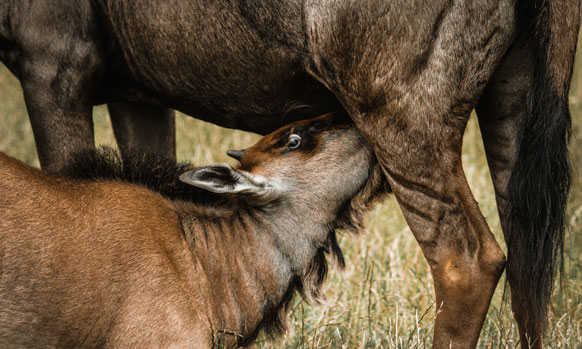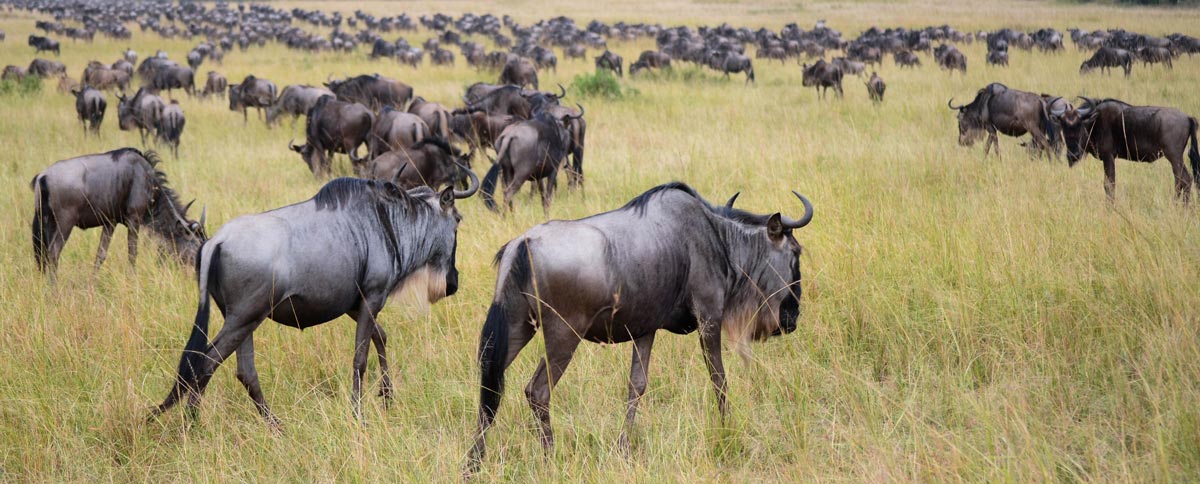Make no mistake: survival isn’t easy. Sheltered and coddled, we humans have it easy. It wasn’t always this way, of course, and in many regions around the world it’s still an almost overwhelming challenge. But I’ve witnessed the most incredible survival stories here in the Kenyan bush that any creature on the planet has to face.
It’s the wildebeest.
Born in the hostile open plains of the Serengeti, nearly half a million calves are born in a matter of just a few short weeks. Surrounding this annual ritual are predators hungry for easy prey.
And what better prey than a newborn?
Lions and hyenas stalk the gathering, a cacophony of grunts warn of impending danger, but there’s little that can be done other than to keep moving. Most baby animals when first born must wait. They struggle to right themselves and wobble as they learn to walk.
The wildebeest calf has no such luxury.


A young calf has just breathed air for the first time. She understands little of what surrounds her. Weak legs struggle to steady her tender frame while her mother sticks close by her side. I witness Hyenas cutting through the herd as they spread out to cover the most ground. Their keen sense of smell and bright eyes scour the landscape for the youngest and frailest of them all.
On some days, 8,000 calves may be born, and not all will survive more than a couple minutes. Our calf fights and falls, rights herself and tumbles, tries again and begins to find her strength.
I see one hyena is approaching. Stalking. Greedy and hungry it spots the poor baby desperately holding close to her momma. I remember the scene clearly. My heart is beating hard. I don’t want to watch, but I’m unable to look away.

The hyena breaks through the ranks and it moves closer, measuring its prey. The baby calf tries desperately to keep up, but begins falling behind. Separated from her mother, the hyena makes its move.
Miraculously, our calf, with steadying feet and a swiftness not available to most, sprints a short distance, enveloped in the safety of the herd.
In just four minutes, the wildebeest calves learn to walk – the fastest of all mammals. It takes a human about a year to do that, but our darling newborn has no such luxury of time.
I head back to camp, smiling for the survival I’ve witnessed. Not all will be so fortunate this day.

